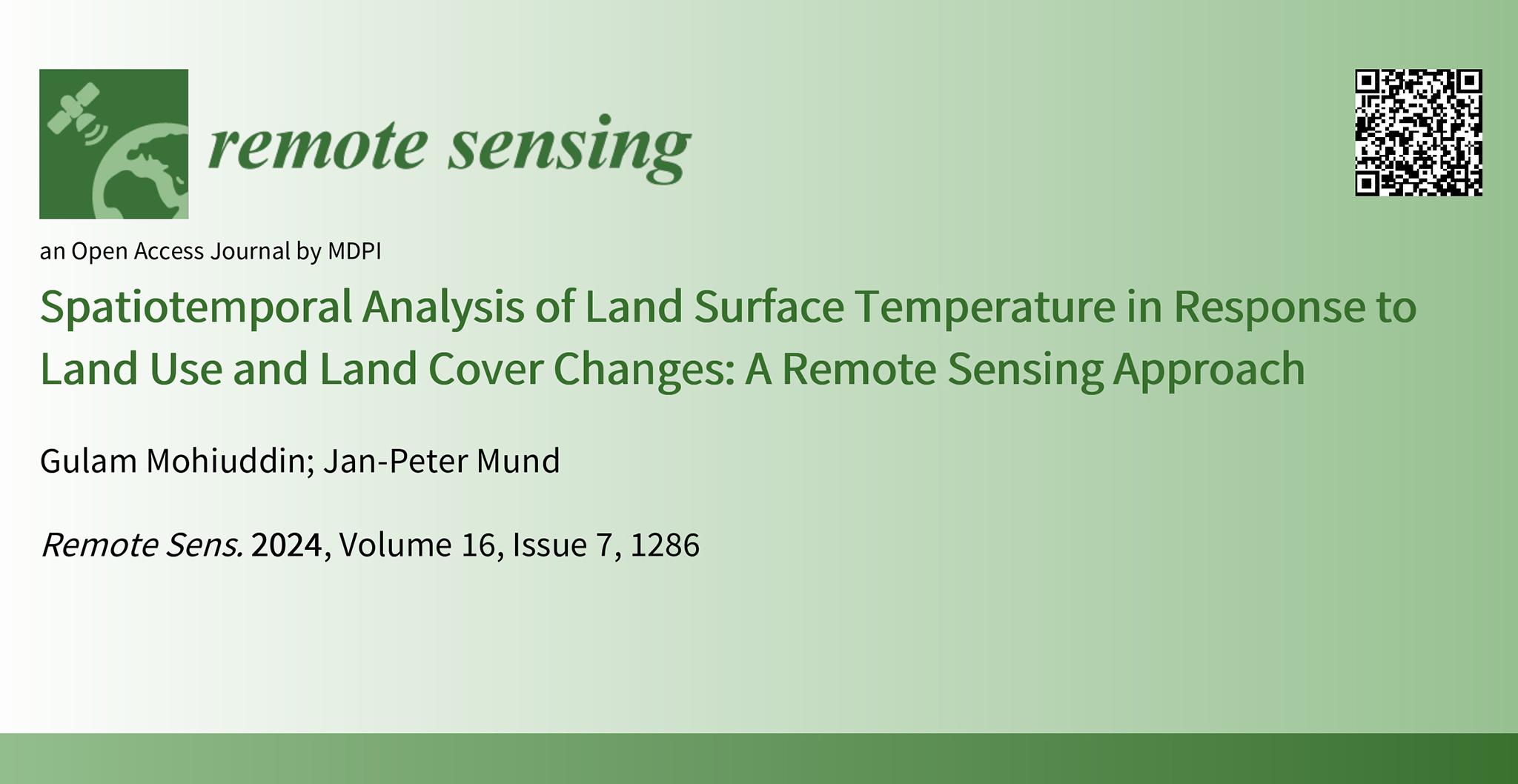Remote Sensing is an international, peer-reviewed, open-access journal about the science and application of remote sensing technology and is published semimonthly online by MDPI. The journal is indexed within Scopus, SCIE (Web of Science), Ei Compendex, PubAg, GeoRef, Astrophysics Data System, Inspec, dblp, and other databases. Journal Rank: (IF: 5.0) JCR – Q1 (Geosciences, Multidisciplinary) / CiteScore 7.9 – Q1 (General Earth and Planetary Sciences).
The study authored by Gulam Mohiuddin and Prof Dr Jan Peter Mund from Eberswalde University for Sustainable Development offers a comprehensive spatiotemporal exploration into how urbanization impacts land surface temperature (LST), focusing on the rapid urban development (Chbar Ampov District) around Phnom Penh, Cambodia. Utilizing Landsat imagery spanning from 2000 to 2021, the study has observed significant variability in LST driven by land use and cover changes alongside seasonal patterns.

Key findings include:
- LST variations ranging from 20°C to 69°C, significantly influenced by seasonal changes and urban development.
- Urban areas, notably those with reduced vegetation cover, exhibit elevated LST, contributing to the urban heat island effect.
- A replicable model for analyzing LST changes, providing crucial insights for urban planning and sustainable development strategies.
The research emphasizes the urgent need for integrated planning approaches that consider the environmental impacts of urban expansion, aiming to mitigate the urban heat island effect through sustainable urban planning practices. This study not only advances our understanding of LST dynamics in rapidly urbanizing regions but also demonstrates the usefulness of remote sensing as a tool for urban environmental analysis.
The publication can be accessed at: https://www.mdpi.com/2072-4292/16/7/1286.


